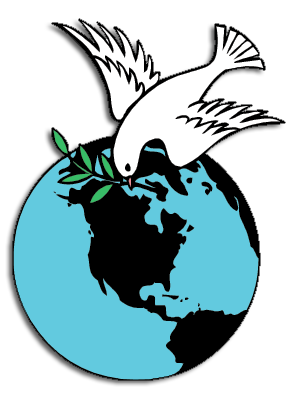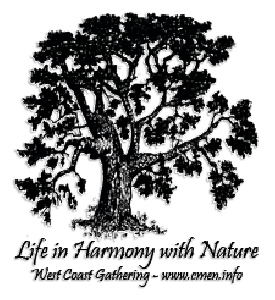America Celebrates our Planet on Earth Day

On the first Earth Day, April 22, 1970, an estimated 20 million Americans of all ages and from all walks of life participated in celebrations from coast to coast, raising public awareness about protecting and cleaning the nation's environment and conserving natural resources.
Today Earth Day is a time to celebrate gains America has made including cleaner air, cleaner water, reduction of solid waste, restoration of ravaged landscapes, and the creation of new urban and national parks. Earth Day is credited with leading to the creation of the United States Environmental Protection Agency (EPA) and the passage of the Clean Air Act, the Clean Water Act, and the Endangered Species Act.
As we celebrate the forty second Anniversary of the first Earth Day, it is also a time to to further our commitment to conservation and protection of the environment, to reduce pollution and to reduce energy consumption. Scientists tell us that global climate changes resulting from increasing greenhouse gas emissions are expected to challenge our water supply, agriculture, forestry, energy production, health, and transportation during the coming decades. A global warming report issued April 6 by the United Nations Intergovernmental Panel on Climate Change (IPCC) predicts a global warming of three degrees centigrade this century, potentially resulting in millions of people short of drinking water, extreme food shortages in Africa, and 20 - 30 percent of species at risk of extinction unless the warming trend is corrected.
Earth Day continues to be a time to create new visions and to unite around new actions to protect our planet. Cleaning the air and water, controlling noise, and restoring ravaged landscapes are all pieces of a large mosaic, lengthening lives and improving human well being by reducing the poisons in our air, water, and soil. This is the ideal America we all cherish.
Earth Day educational resources:
National Environmental Education Week - April 13-19, the nation's largest celebration of environmental education, inspiring environmental learning and stewardship among K-12 students.
Celebrate Earth Day - US Environmental Protection Agency site lists events around the world, information about environmental issues, taking action on our personal lives, and also provides educational information and lesson plans for schools.
Earth Day Network - Educator's Network includes standard-based lessons, school greening tips, grants for teachers and more.
Earth Day Network - Learn about the many ongoing initiatives of Earth Day Network, an organization that works with over 22,000 partners in 192 countries.
Join in the following Earth Day activities:
Aquarium of the Pacific Earth Day Celebration - April 26-27, 9:00 - 5:00, Join the Aquarium for a weekend of family fun celebrating Earth Day while learning simple, everyday tips to protect our environment.
Earth Day 2014 - April 12, 10:00 - 2:00, Sanitation Districts of Los Angeles, Whittier, enjoy music and dance performances, create eco-friendly arts and crafts, and participate in many other activities while learning about environmental issues.
Pasadena Earth & Arts Festival - May 3, 11:00 to 5:00, Memorial Park & Armory Center, 145 N Raymond Avenue, Pasadena
Santa Barbara Earth Day Festival - April 26-27, 11:00 - 6:00, Alameda Park, Santa Barbara, free festival promotes the power of grassroots action in protecting the environment, with specific resources around "drive less," "go solar," "choose electric," "ditch plastic" and "eat local."
Earth Fair 2014 - San Diego Earth Works - April 27, 10:00 - 5:00, Balboa Park, San Diego, environmental fair for environmental education, awareness and Earth Day celebration.
Wilshire Center Earth Day / Car Free Day - TBA, Wilshire Park Plaza, 3700 Wilshire Blvd, Los Angeles
Topanga Earth Day - April 19-20, 10:00 a.m. to- Sunset, new location: Old Canyon Ranch, 301 Old Topanga Road Topanga, CA, features music, art, speakers, workshops, and earth-friendly food vendors.
Earth Day Fair & Beach Cleanup at Cabrillo Marine Aquarium - April 19, Beach cleanup 8:00 - 10:00, Festival 10:00 - 3:00, Cabrillo Marine Aquarium Courtyard, San Pedro
WorldFest - May 18, 10:30 - 7:00, Woodley Park, Lake Balboa. LA's Green, Compassionate Living, Music Festival.

Develop a more "green" and environmentally conscious lifestyle:
Each of us can lessen our impact on the environment and help conserve natural resources by practicing three simple things in our daily lives:
- Reduce the amount of the Earth's resources that we use: Small changes can add up to big differences, and it's simply a matter of managing your water and energy consumption at home and at work, considering transportation alternatives, by eliminating waste and using only what you need.
- Reuse - don't just toss it, could someone else make use of it? Reuse starts with buying reusable items. When something is no longer needed, reuse becomes a simple concept "one person's trash is another person's treasure." Repairing items, donating them to charity and community groups, or selling them reduces waste. Reusing products, when possible, is even better than recycling because the item does not need to be reprocessed before it can be used again.
- Recycle - Can the materials be made into something new? Recycling turns materials that would otherwise become waste into valuable resources. In addition, it generates a host of environmental, financial, and social benefits. Materials like glass, metal, plastics, and paper are collected, separated and sent to facilities that can process them into new materials or products. Old computers and other electronic items can also be recycled.
Learn more at our earth friendly living links page.
Exploring Nature & Our Planet:
In March 1872, Congress established Yellowstone National Park beginning a worldwide national park movement. Today our national parks include a network of nearly 400 natural, cultural and recreational sites across the nation. In addition, states and local counties have established parks where people can explore and enjoy these natural areas. Learn more at our Exploring Nature & Our Planet links page.
